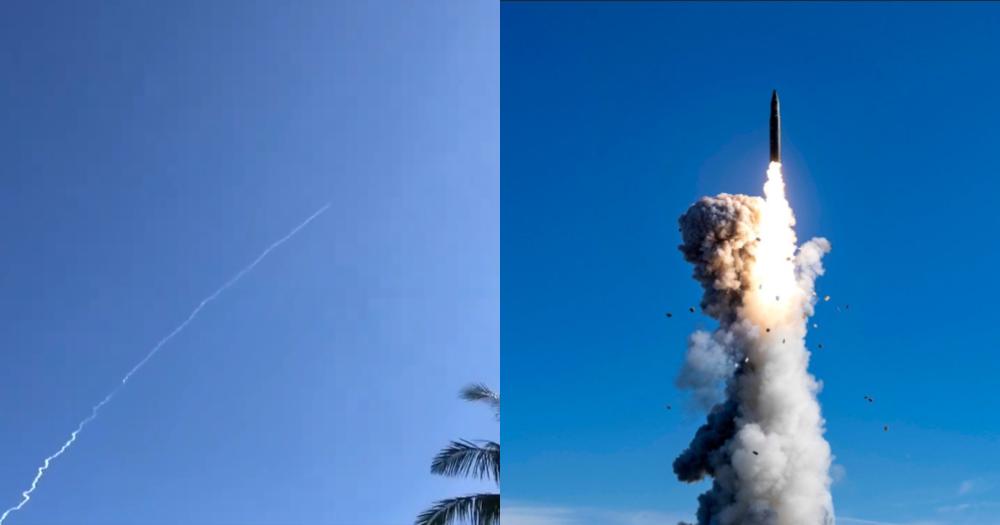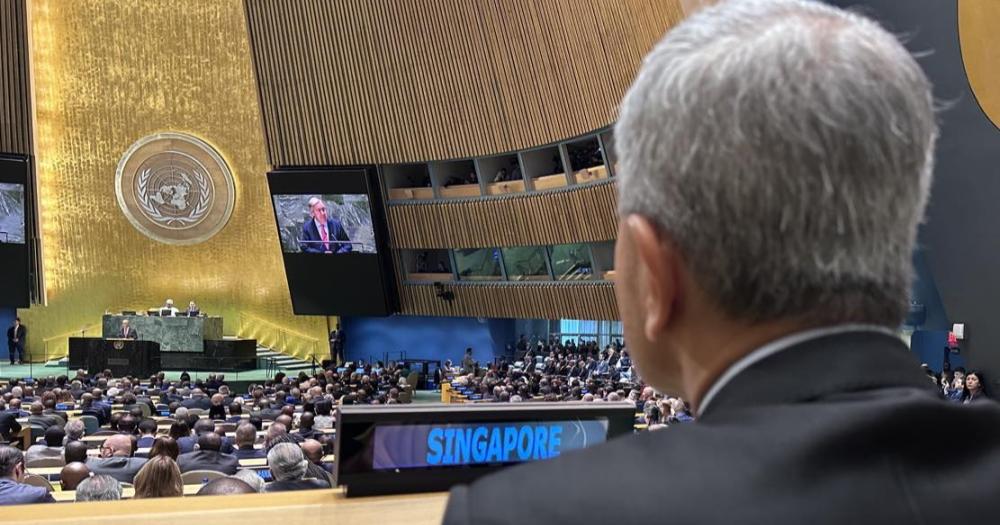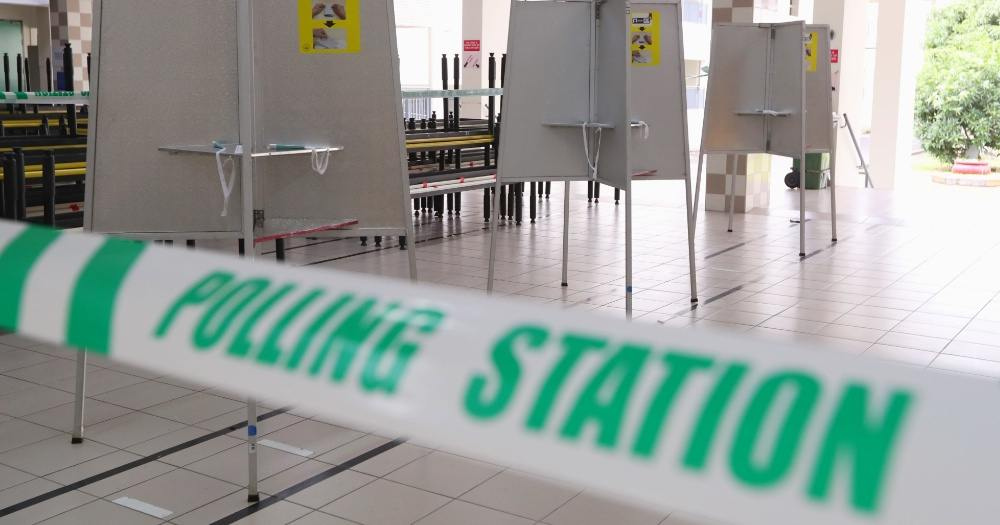US confirms China gave advance notice of ICBM test fire, calls it a 'good thing'
This is China's first test-launch into international waters in over 40 years.

On Sep. 25, the People's Republic of China test-fired an intercontinental ballistic missile (ICBM) containing a dummy warhead from Hainan Island into the Pacific Ocean.
The test fire was widely perceived by analysts in the region to be a challenge to the United States and its allies.
However, the U.S. Department of Defense, on Sep. 26, praised China for giving advance notice of the ICBM test as a step in the right direction.
Routine launch
The Global Times quoted a defence ministry spokesperson for China as saying that the test launch was “routine military training”, and that it was “legitimate and reasonable”.
The launch was to test the “performance of the weapon and equipment”, as well as that of the “troops operating it”.
The spokesperson said that China's nuclear policy is “highly stable, consistent, and predictable”.
GT's reported the Associated Press (AP) saying that China rarely tested ICBMs in international waters and that some experts had said the last such event had taken place in 1980.
It also reported that China had “informed the relevant countries prior to the launch”.
Irrelevant countries
While this appears to be the case with the U.S., the BBC reports that other countries such as Japan said they did not receive a warning.
They, together with Australia and New Zealand, have expressed their concerns over the launch.
@defstra, an open-source intelligence analyst, mapped navigation warnings issued by Japan, indicating two areas of concern, and a potential flight path of the missile.
China has confirmed the successful test of an intercontinental ballistic missile (ICBM) into the Pacific Ocean, available public data mapped shows danger zones almost as close as 90-km to the Philippines were announced by China as a part of this test pic.twitter.com/ZqovtlQhEu
— Damien Symon (@detresfa_) September 25, 2024
The warning areas came within 90 kilometres of the northern tip of the Philippines’s Luzon island.
Mobile launcher
Reuters reports speculation on the significance of the ICBM's Hainan launch site is significant, as test launches are typically conducted from fixed inland silos.
A Hainan launch means that the ICBM, which was carrying an inactive dummy warhead, could have originated from a mobile launcher.
Drew Thompson, a senior fellow from the Rajaratnam School of International Studies, told AP that the test's timing was a “pretty blunt signal”.
He also said that China was signalling that it was prepared to use its most powerful weapons to deter adversaries, or “punish them” if deterrence fails.
Thompson also wrote on social media platform X (formerly Twitter) that the launch comes amidst high levels of tension with other countries in the region, such as Japan, but also the Philippines.
Timing is everything. The PLA statement claims the launch does not target any country, but there are high-levels of tension between China and Japan, Philippines, and of course perpetual tension with Taiwan.
This launch is a powerful signal intended to intimidate everyone.
— Drew Thompson 唐安竹 (@TangAnZhu) September 25, 2024
Throughout the year, China and the Philippines have been confronting each other in the South China Sea, with vessels operated by both countries coming into physical contact with each other on numerous occasions.
The launch comes more than a year after several senior members of China's rocket force were arrested for corruption in 2023.
“A good thing”
Both the Global Times and Bloomberg reported on a United States Defense Department spokesperson acknowledging that the U.S. had received advance notice of the test launch.
Bloomberg quotes the spokesperson as saying” We did receive some advance notice of this ICBM test and we believe that was a good thing”.
The spokesperson said that the notification was a step in the right direction, and helped to prevent “misperception or miscalculation”.
The spokesperson also said that the U.S. had asked China for more regular notifications of such ballistic missile or space launches.
China's notification, the spokesperson said, represented a “common sense, confidence building measure” and that the U.S. wanted these types of notifications to continue.
After then-House Speaker Nancy Pelosi visited Taiwan in 2022, communication between the U.S. military and the People's Liberation Army had been cut off.
Communication between the two militaries has only been recently restored after U.S. President Joe Biden met with China President Xi Jinping face-to-face in San Francisco in 2023.
The AP reports that the launch comes weeks before an expected call between Xi and Biden.
Satan II
However, this was not the only intercontinental ballistic missile test to occur this week.
Sep. 23, CBS News reported that satellite imagery indicated that Russia had attempted to launch an ICBM test in recent days.
That satellite imagery indicated that there had been a possible explosion at a launch site in Northern Russia on September 21.
The missile was speculated to be a Sarmat ICBM, colloquially known in the West as a Satan II missile.
CBS News reports that Russia has conducted six failed tests of nuclear weaponry since June this year.
Top image via @CNSpaceflight/X
MORE STORIES




















